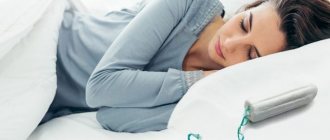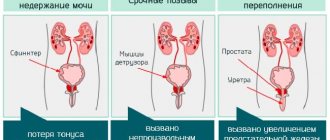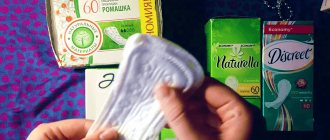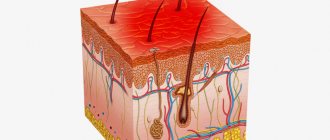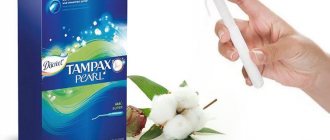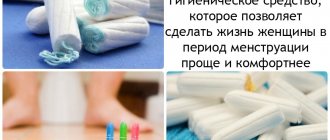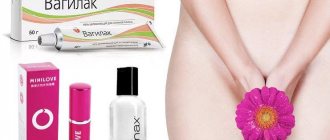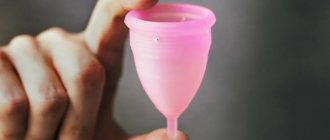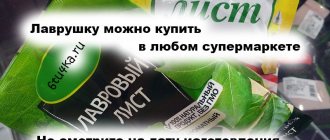Last update: 12/12/2019
Obstetrician-gynecologist of the highest category, Head of the gynecological department of the Medgard-Saratov network of multidisciplinary clinics
Hygiene during menstruation
A woman’s health and well-being largely depend on observing the rules of intimate hygiene during menstruation. The rejected uterine endometrium and blood released during menstrual periods are a beneficial environment for the proliferation of bacteria, therefore it is extremely important to promptly carry out hygiene procedures and replace pads and tampons.
Features of hygiene during menstruation
During menstrual periods, the external os of the cervix opens slightly to facilitate the outflow of menstrual fluids. Due to this, pathogenic microbes can quite easily penetrate into the uterine cavity, so the rules of hygiene during menstruation imply regular washing with the use of hypoallergenic products, as well as frequent changes of hygiene products.
Washing should be done after each change of pad, tampon or menstrual cup. Before changing the product you are using, you should wash your hands thoroughly with soap.
It is recommended to wash using special gels that have a neutral pH level and do not contain fragrances or fragrances.
If a woman cannot provide herself with frequent washing during menstruation due to her work or school schedule, she must wash herself at least twice a day - in the morning and in the evening. It is recommended to avoid taking a bath, visiting the sauna and bathhouse during this period, as high temperatures can lead to increased bleeding.
Hygiene products for menstruation
There are three options for menstrual hygiene products, each of which has both positive and negative qualities.
The personal hygiene products described below during menstruation should be changed in a timely manner - it is advisable to do this every 3 hours. After the specified time, bacteria begin to actively multiply on the surface of pads and tampons, which can cause microflora disturbances and a number of diseases. This is especially true for tampons: being inside the vagina, they are not able to ensure the free outflow of menstrual fluid, which, as mentioned above, is an ideal environment for the development of pathogenic microflora. The menstrual cup can be changed somewhat less frequently - approximately once every 4-5 hours.
Hygiene products during menstruation
Gaskets
The pads are made of absorbent materials with a soft top layer. Their main purpose is to collect menstrual fluid released through the vagina.
The thickness and size of the pads varies depending on the needs of each individual woman.
Thus, there are wide and long pads with large wings (ideal for the first three days of the cycle), medium and small ones (suitable for scanty discharge).
Gaskets
Some kind of reusable sanitary pads have been known to women since time immemorial. During menstruation, they used moss, rags, cotton wool and other improvised means. The first prototype of modern gaskets first appeared on the market in 1921. Today, all you have to do is go to the pharmacy to buy a wide variety of disposable pads. These hygiene products are especially good for girls who have recently started menstruating: they are the simplest and most convenient to use. However, pads may not be suitable for girls leading an active lifestyle. The choice of pads
depends on the intensity of the discharge.
Traditionally, women choose pads with the best absorbent properties in the first days of menstruation and thin ones when the discharge is almost over. As a rule, the absorbent properties are indicated by the marking on the package
: either the number of “droplets” (usually from one or two to seven or eight), or the size - from mini to maxi.
In addition, pads come in different sizes, including extra long and thick ones for sleeping or intense movements during the day. Hygiene products for the postpartum or postoperative period
. As a rule, such pads are sterilized and are in special packaging. Almost all pads are equipped with a special adhesive layer on the outside, which makes them easy to attach to underwear. Also, many types of pads have “wings” - additional elements with an adhesive layer that are tightly attached to the underwear and protect against secretions leaking on the sides.
Hygiene during menstruation for teenagers
Hygiene during menstruation for girls
The rules of personal hygiene during menstruation for teenage girls are practically no different from similar recommendations for older women. However, there are some nuances determined by the physiology of the teenage body that need to be taken into account when choosing hygiene products and performing intimate hygiene:
- During their first menstruation, girls are advised to use pads rather than tampons, since the presence of a foreign object in the vagina can cause some discomfort. Regarding the use of tampons for girls who are not sexually active, it is necessary to familiarize yourself with the information and recommendations of the manufacturers.
- Important - the menstrual cup can only be used after the start of sexual activity.
- To reduce the “greenhouse effect” when using pads, girls should not wear synthetic panties during their periods. Instead, it is advisable to choose underwear made from natural materials, such as cotton.
- It is important to draw the girl’s attention to the need to frequently change used hygiene products (every 3-4 hours).
- If a teenage girl is not sexually active, she should not use a menstrual cup.
- Swimming in a bath, visiting a sauna or bathhouse during menstruation is prohibited. Instead, it is recommended to shower twice a day.
- It is advisable to wash yourself after each gasket change.
However, if this is not possible, you can limit yourself to morning and evening washing. In this case, it is necessary to direct the stream of water in the direction from the pubis to the anus, but in no case vice versa. - Warm water is suitable for washing, to which you can add chamomile decoction. Since ordinary soap can disrupt the acidity of the vagina and lead to dryness and irritation of the mucous membrane, it is not recommended to use it when washing. Special products that do not affect the pH level are much better suited for this purpose.
- After washing, you need to blot your genitals with a towel - do not rub them, but remove excess moisture with delicate blotting movements. Be sure to use a personal towel for drying.
- During puberty, the functioning of the sebaceous glands increases, caused by changes in hormone production. Regular showering and the use of deodorant, which is applied exclusively to clean, dry skin, help get rid of the emerging sweat odor. It is essential to wash your underarms and chest area daily to remove excess sebum and deodorants to prevent clogged sebaceous ducts.
Period data
Typically, menstruation lasts about 4 days. The nature of bleeding varies from person to person. One lady has fairly strong discharge lasting 3-4 days, while another has more scanty discharge lasting 5-6 days.
The first menstruation is called "menarche". They begin at puberty. Often at the age of 13 years, but this period can vary from 12 to 15. When the first regulations appear is difficult to calculate, this event depends on a number of factors, including: the level of physical development, quality of nutrition, previous diseases, social and living conditions, etc. .P.
The regulative cycle lasts from the 1st day of the onset of blood discharge to the 1st day of subsequent ones. For the vast majority of women, its duration is 28 days, but the norm also includes ± 7 days.
Washing gels "Ginocomfort" - an ideal means of genital hygiene during menstruation
Thanks to a balanced composition, which includes tea tree oil, chamomile extract, bisabolol, panthenol, lactic acid and sodium lactate, as well as other components (for more detailed information on the composition of each product, see the product pages), Ginocomfort gels are completely hypoallergenic and harmless. Their use during menstruation provides gentle cleansing and moisturizing of the genital organs, and has an anti-inflammatory and antimicrobial effect. These products were created by specialists from the pharmaceutical company VERTEX and have a full list of necessary documents and certificates.
How often and with what should you wash?
Gynecologists advise washing your genitals during menstruation every time you change a pad or tampon, that is, after 3-4 hours. Even if the gasket is not completely filled during this time, it still needs to be replaced with a new one. The cervix opens a little these days, so harmful microorganisms can easily penetrate into it and cause the development of inflammatory processes. In addition, menstrual blood perfectly promotes the reproduction and development of pathogenic bacteria.
It is not recommended to take a bath during menstruation, since tap water usually contains all kinds of pathogenic microorganisms.
And the surface of the uterus these days can be compared to a bleeding wound, very susceptible to infections. In addition, hot water can cause increased discharge, and sometimes even lead to bleeding. Therefore, these days it is advisable to wash in the shower, directing the flow of water from top to bottom in a tangential direction.
Also, due to the vulnerability of the uterus during menstruation, it is not advisable to visit open water bodies and swimming pools. But if it happens that you still have to swim, then it is better to use a hygienic tampon. Moreover, after swimming you will need to take a shower, and immediately replace the used tampon with a clean one.
Intimate hygiene during menstrual periods should be carried out using specially designed products. The fact is that ordinary soap contains a lot of alkali, which can dry out the delicate skin of the intimate area. Therefore, it is advisable to wash the external genitalia with an intimate hygiene gel that does not contain dyes, fragrances, and is also capable of maintaining natural acidity. Among such products, it is worth highlighting the Ginocomfort line of intimate gels, which gently and carefully cleanses delicate skin without irritating it. They were developed by specialists from the pharmaceutical company VERTEX and have all the necessary documents and certificates.
The composition of the Gynocomfort gel (the composition varies depending on the chosen product) includes such useful components as lactic acid, chamomile extract, tea tree oil, prebiotic complex, panthenol, etc.
This intimate gel gives the skin not only cleanliness and freshness. It also has anti-inflammatory, soothing, antiseptic and regenerating effects. You can use Gynocomfort intimate gel both as a daily product instead of soap, and during menstruation, during pregnancy and after childbirth. In addition, this intimate gel is able to protect a woman’s health during visits to places that are dangerous in terms of infection, such as showers, gyms, and swimming pools.
Rules of intimate hygiene, video
is not responsible for the accuracy of the information presented in this video clip. Source -
JIt Zdorovo
Sources:
- PUBLIC PERCEPTION OF MENSTRUATION AND TAMPON USAGE IN RUSSIA. Burina D. A., Burina E. A. // Interactive science. – 2021. – No. 6. – pp. 16-17.
- USE OF A MENSTRUAL CUP AS A PERSONAL HYGIENE PRODUCT FOR A MODERN WOMAN. Gorpenko A. A. // Problems of modern science and education. – 2021. – P. 80-83.
- Internal menstrual protection. Use of a safe and sanitary menstrual cup. Liswood R. // Obstet Gynecol. - 1959. - 13: P. 539–543.
- Menstrual hygiene: A neglected condition for the achievement of several millennium development goals. Ten VTA. // Europe External Policy Advisors. Oct. — 2007.
- Duet or menstrual protection. Averbach S. Sahin-Hodoglugil N. Musara P. Chipato T. van der Straten A. // A feasibility study in Zimbabwe. Contraception. - 2009. - 79: P. 463–468.
